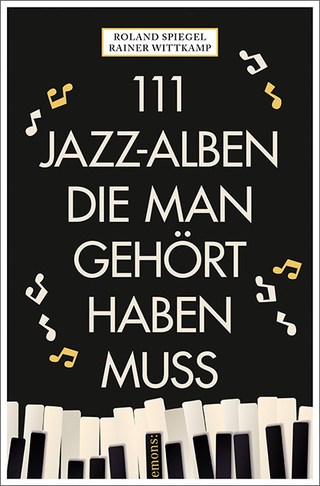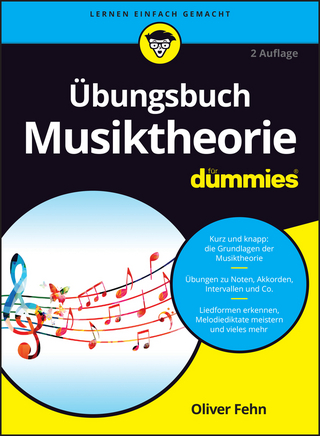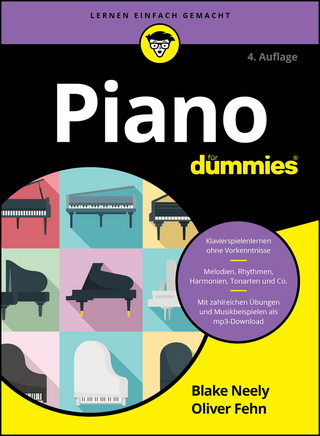
Anthology for Music in Western Civilization, Volume II
Schirmer Books,U.S. (Verlag)
978-0-495-57275-6 (ISBN)
- Titel ist leider vergriffen;
keine Neuauflage - Artikel merken
Bryan R. Simms (Bachelor of Arts, Yale University, 1966; Ph.D., Yale University, 1971) has taught since 1976 at the University of Southern California, where he has been director of graduate studies and is currently chair of the department of musicology. He is the recipient of fellowships from the National Endowment for the Humanities and the Fulbright Foundation. He is the author of books and articles on topics in twentieth-century music and music theory, including MUSIC OF THE TWENTIETH CENTURY (Schirmer 1996) and, most recently, THE ATONAL MUSIC OF ARNOLD SCHOENBERG, 1908-1923 (Oxford University Press). Timothy J. Roden (Bachelor of Music, Houghton College, 1980; Ph.D., Northwestern University, 1992) teaches music history, world music, survey of music literature, and music appreciation at Ohio Wesleyan University. He received grants from Northwestern University and the Deutscher Akademischer Austauschdienst that allowed him to complete research in Berlin, Germany, on German orchestral lieder. He has contributed an article on Schumann's lieder to the NATS Journal, is preparing an edition of orchestral lieder for a scholarly press, and has prepared ancillaries to accompany Wright's LISTENING TO MUSIC (Thomson-Schirmer). Craig M. Wright, Ph.D., received his Bachelor of Music from the Eastman School of Music in 1966 and his Doctorate in Musicology from Harvard University in 1972. He began his teaching career at the University of Kentucky and for over forty years taught at Yale University, where he was the Henry L. and Lucy G. Moses Professor of Music. At Yale, Wright�s courses included his perennially popular introductory course, Listening to Music (also part of the offerings of Open Yale Courses); his large lecture course, Exploring the Nature of Genius; and most recently his Coursera course, Introduction to Classical Music. He is the author of numerous scholarly books and articles on composers ranging from Leoninus to Bach. Wright has also been the recipient of many awards, including a Guggenheim Fellowship, the Einstein and Kinkeldey Awards of the American Musicological Society, and the Dent Medal of the International Musicological Society. In 2004, he was awarded the honorary degree Doctor of Humane Letters from the University of Chicago. In 2010 he was elected a member of the American Academy of Arts and Sciences, joining fellow inductee and banjo player Steve Martin.
Part V: THE ENLIGHTENMENT AND THE CLASSICAL ERA.
41. Music in the Age of Enlightenment: Opera.
42. Music in the Age of Enlightenment: Orchestral Music.
43. Music in the Age of Enlightenment: Keyboard Music.
44. Classical Music in Vienna.
45. Joseph Haydn: Instrumental Music.
46. Joseph Haydn: Late Symphonies and Vocal Music.
47. Wolfgang Amadeus Mozart: Instrumental Music.
48. Wolfgang Amadeus Mozart: Vocal Music.
49. The Early Music of Beethoven.
50. Beethovens Middle Period: 1802-1814.
51. After the Congress of Vienna: Beethovens Late Music.
Part VI: ROMANTICISM.
Musical Interlude 7: Romanticism.
52. Franz Schubert.
53. Music in Paris Under Louis Philippe: Berlioz and Chopin.
54. Leipzig and the Gewandhaus: Mendelssohn and the Schumanns.
55. German Opera in the Nineteenth Century: Weber and Wagner.
56. Opera in Italy: Rossini and Verdi.
57. Nationalism and Virtuosity: Franz Liszt.
58. Vienna in the Late Nineteenth Century: Brahms and Bruckner.
59. Music and Ballet in Nineteenth-Century Russia: Mussorgsky and Tchaikovsky.
60. Vienna at the Turn of the Twentieth Century: Gustav and Alma Mahler.
61. England at the End of the Romantic Period: Elgar and Vaughan Williams.
62. Opera in Milan After Verdi: Puccini, Toscanini, and Verismo.
63. Paris of the Belle Epoque: Debussy, Faur�, and Lili Boulanger.
Part VII: THE EARLY TWENTIETH CENTURY.
Musical Interlude 8: Music Since 1900.
64. Richard Strauss in Berlin.
65. Music in Russian During the Silver Age: Igor Stravinsky.
66. Atonality: Schoenberg and Scriabin.
67. French Music at the Time of World War I: Ravel and Satie.
68. Music in Paris After World War I: Stravinsky and the Six.
69. Vienna in the Aftermath of War: Twelve-Tone Methods.
70. Musical Theater in Germany in the 1920s: Berg and Weill.
71. B�la Bart�k and Hungarian Folk Music.
72. Early Jazz.
73. Paul Hindemith and Music in Nazi Germany.
74. Music in Soviet Russia: Prokofiev and Shostakovich.
75. Self-Reliance in American Music: Ives, Seeger, and Nancarrow.
76. American Composers Return from Europe: Copland and Barber.
77. Tin Pan Alley and the Broadway Musical.
Part VIII: CONTEMPORARY MUSIC.
Musical Interlude 9: After World War II.
78. Reflections on War: Britten, Penderecki, and Others.
79. Twelve-Tone Music and Serialism After World War II.
80. Alternatives to Serialism: Chance, Electronics, Textures.
81. Harlem in the 1930s, 1940s, and 1950s: Big Bands, Bebop, and Cool Jazz.
Musical Interlude 10: The Birth of Rock.
Musical Interlude 11: Music in the Movies.
82. Music of the 1960s and 1970s: Live Processes, Minimalism, Metric Modulations.
83. Returning to the Known: Music of the Recent Past.
| Erscheint lt. Verlag | 17.4.2009 |
|---|---|
| Sprache | englisch |
| Maße | 213 x 274 mm |
| Gewicht | 2472 g |
| Themenwelt | Kunst / Musik / Theater ► Musik |
| ISBN-10 | 0-495-57275-6 / 0495572756 |
| ISBN-13 | 978-0-495-57275-6 / 9780495572756 |
| Zustand | Neuware |
| Haben Sie eine Frage zum Produkt? |
aus dem Bereich


